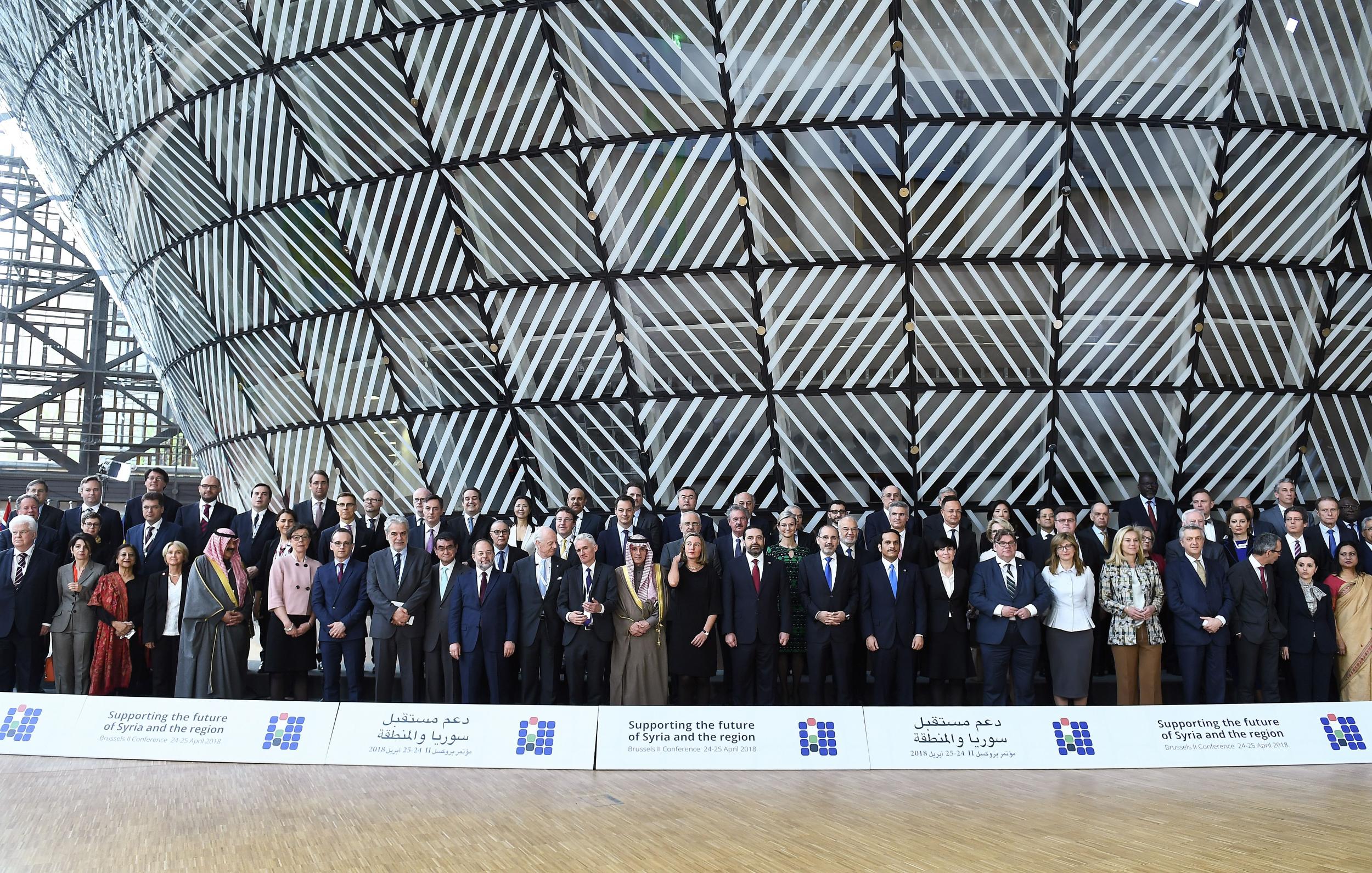UN conference to raise aid for Syria conflict refugees falls well short of target
The UK and Germany were among major donors but aid agencies warned of ‘unmet and growing needs’

Your support helps us to tell the story
From reproductive rights to climate change to Big Tech, The Independent is on the ground when the story is developing. Whether it's investigating the financials of Elon Musk's pro-Trump PAC or producing our latest documentary, 'The A Word', which shines a light on the American women fighting for reproductive rights, we know how important it is to parse out the facts from the messaging.
At such a critical moment in US history, we need reporters on the ground. Your donation allows us to keep sending journalists to speak to both sides of the story.
The Independent is trusted by Americans across the entire political spectrum. And unlike many other quality news outlets, we choose not to lock Americans out of our reporting and analysis with paywalls. We believe quality journalism should be available to everyone, paid for by those who can afford it.
Your support makes all the difference.An international conference aimed at raising aid for the victims of the Syrian conflict raised just over half of what the UN said was needed to support refugees from the country, as aid charities warn of “unmet and growing needs” among survivors.
The Brussels II summit, which was jointly organised by the European Union and United Nations and held on Tuesday and Wednesday of this week, raised $4.4bn (£3.2bn) – well short of the roughly $7-8bn the UN organisers had estimated was required.
Thanking the EU, Germany and Britain for making large contributions, Mark Lowcock, the UN’s humanitarian chief, said the money was “a good start” but that it would have to be saved for desperate cases given the shortfall.
“We are talking about a large sum of money and there is a lot of pressure on the financiers,” he told reporters, though he predicted that that contributions would grow further.
“The key issue is to make sure ... priority is given to those in most need and those most vulnerable.”
Aid organisations, many of whom have presences on the ground in the conflict, said the conference “did not go nearly far enough” to provide support.
“Though the crisis is now in its eighth year, the unmet and growing needs of millions of men, women and children mean that donor countries cannot show any sign of fatigue,” charities Care, IRC, Mercy Corps, NRC, Save the Children, Oxfam, Humanity and Inclusion, Action Against Hunger, and World Vision said in a joint statement.
“This conference did not go nearly far enough to provide adequate support to the millions of Syrians in need of assistance and who are left facing an uncertain future.”

The organisations also added that the donor countries at the conference “have once again done nothing to increase resettlement beyond the paltry 3 per cent of Syrian refugees they have taken in, favouring instead to leave them in Syria’s neighbouring countries”.
Lebanese prime minister Saad Hariri, who faces elections in two weeks and whose country has well over 2 million refugees despite being half the size of Wales (which has a population of around 3.1 million), said the plight of Syrians was simply getting worse.
“The bitter truth is that despite all our combined efforts, conditions have deteriorated. Lebanon continues to be a big refugee camp,” he said.
Britain pledged an extra £250m in humanitarian aid for Syria over two years on Wednesday. The announcement takes its commitment up to £450m for Syria and the region in 2018, with £300m earmarked for 2019, bringing the total UK aid to the region to £2.71bn.
Alistair Burt, the UK’s Middle East minister said: “This is the world’s greatest protection crisis. If you look at what’s happened and what’s been done to people – breaches of humanitarian laws, the weakening of multilateral norms that we have seen for a long time – it’s all focusing on Syria,” he said.
Germany meanwhile pledged an additional billion euros (£870m). “In Syria alone there are still more than 13 million people who are dependent on humanitarian aid,” the country’s foreign minister Heiko Mass said. “We must not leave the people in Syria alone.”
An estimated 450,000 people have been killed in fighting in Syria since the country’s president Bashar al-Assad’s regime brutally cracked down on protests calling for his removal that started in 2011. The conflict has since spiralled into a civil war drawing in militias backed by the country’s neighbours, international terror groups, and Russian and Western coalition airstrikes and special forces.
Join our commenting forum
Join thought-provoking conversations, follow other Independent readers and see their replies
Comments